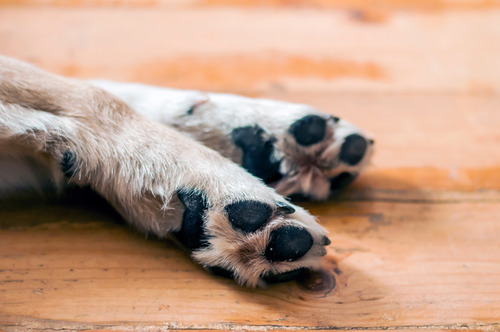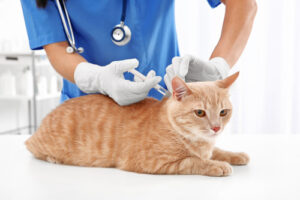When a dog experiences a paw pad laceration, it can be a concerning moment for any pet owner. These injuries may seem minor, but they can lead to serious complications if not addressed promptly and properly. Understanding the severity and necessary steps to take following a dog paw pad laceration is essential for maintaining your pet’s health and mobility. This blog will explore the causes, symptoms, and when to seek veterinary care for paw pad injuries. If you’re worried about your pet’s paw, call Laurel Veterinary Clinic at (303) 469-5363.
What Causes Paw Pad Lacerations?
Paw pads are tough, but they’re not invincible. Various factors can cause lacerations, including walking on rough or sharp surfaces like rocky terrain or debris, exposure to extreme temperatures, or contact with chemicals. Active dogs or those exploring new environments are particularly at risk. Understanding these risks can help you prevent injuries before they happen.
Common Risk Factors
- Outdoor Hazards: From jagged stones to broken glass, urban and rural environments both present risks.
- Temperature Extremes: Hot pavement or icy conditions can cause not just lacerations but also burns and frostbite.
- Chemical Irritants: Common chemicals on roads or in gardens can harm a dog’s pads.
Signs of Paw Pad Lacerations
Recognizing a paw pad injury early can prevent further damage. Signs include:
- Visible cuts or abrasions
- Limping or reluctance to walk
- Excessive licking of the paw
- Bleeding
- Unusual whining
Any of these symptoms warrant a closer look and potentially a call to your vet.
When to Contact Your Veterinarian
If you notice any signs of infection like swelling, continuous bleeding, pus, or severe pain, it’s time to contact your vet. You should not bandage your dog’s paws yourself as it’s easy to wrap the paw too tightly and cause swelling, which further exacerbates your pet’s discomfort. If you believe your dog’s paw requires a bandage, please contact your vet so they can bandage the injured paw correctly. Early professional evaluation ensures proper care and can prevent complications such as infections or deeper tissue damage.
Treatment Options for Paw Pad Lacerations
Treatment depends on the severity of the laceration. Minor cuts might only require cleaning and bandaging, while more severe injuries could need sutures or other medical interventions. Here’s what you can expect:
Professional Care and Procedures
Initially, the wound is thoroughly cleaned and disinfected to prevent infection. For wounds that require additional protection, bandaging is applied to safeguard the affected area from further injury and contamination. In cases where the cut is particularly deep or severe, sutures may be necessary to close the wound and promote proper healing.
Additionally, your veterinarian may prescribe pain management solutions to ease your dog’s discomfort during the recovery process. It’s crucial to follow all veterinary recommendations closely to ensure the best outcome for your pet.
Preventing Future Paw Injuries
Preventative measures can reduce the risk of paw injuries. Keeping your dog’s nails trimmed, using protective booties during extreme weather or on rough terrain, and regular paw checks can help keep your pet’s feet healthy.
Tips for Paw Care
- Check your dog’s paws daily for any signs of injury or wear.
- Use protective balms to keep paw pads hydrated and less prone to cracking.
- Steer clear of areas where sharp debris or harmful chemicals may be present.
Treating Your Dog’s Paw Pad Lacerations
While dog paw pad lacerations vary in severity, they all require attention to ensure they heal properly without infection or complications. By understanding what to look for and how to respond, you can ensure your pet recovers quickly and with minimal discomfort. Remember, if you suspect your dog has a paw pad injury, call Laurel Veterinary Clinic at (303) 469-5363 for expert advice and treatment.





